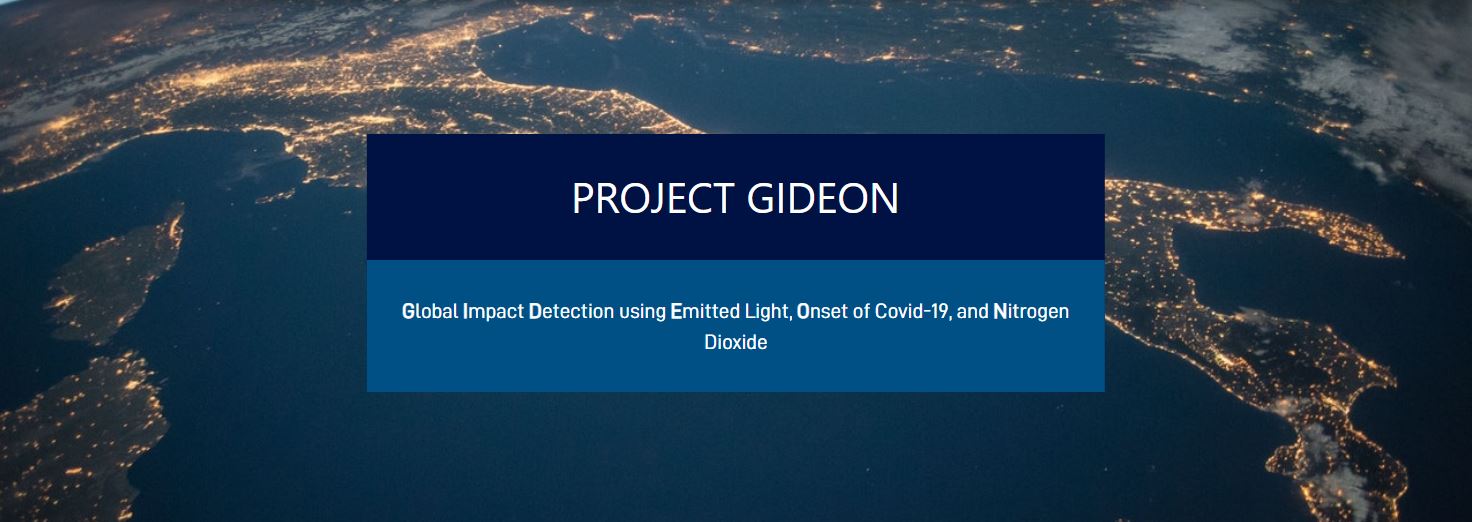Filipino app GIDEON wins NASA COVID-19 Challenge
By: Angie Quadra-Balibay
|
Published on: August 12, 2020

The GIDEON dashboard is intended for use by policy-makers and economic planners to show the impact of COVID-19 on various countries and effects on the economy and environment.
Filipino app GIDEON has won the National Aeronautics and Space Administration (NASA) COVID-19 Challenge.
The Global Impact Detection from Emitted Light, Onset of Covid-19, and Nitrogen Dioxide (G.I.D.E.O.N.), an integrated public policy information portal measuring the impact of the coronavirus pandemic, won the Best of Use Data award.
The Filipino-developed app won for providing the solution that best makes space data accessible or leverages it to a unique application. Using Earth observation, in-country economic data, human mobility data, and global infection case count, G.I.D.E.O.N. integrates public policy information which aims to measure the impact of COVID-19.
The GIDEON dashboard is intended for use by policy-makers and economic planners to show the impact of COVID-19 on various countries and effects on the economy and environment.
The portal uses news feeds, Google mobility data, and coronavirus cases revealing the multi-dimensional impact of lockdown and other interventions.
Night lights from the Visible Infrared Imaging Radiometer Suite (VIIRS) and nitrogen dioxide levels from Sentinel-5P show current impacts and forecast effects of lockdown.
Google’s community mobility reports, global infection data from Johns Hopkins University, and nitrogen dioxide data reveal pollution levels produced by human activity, and monitor which countries keep air quality under control as they bounce back from lockdown and pave the way for the “new normal.”
The GIDEON development team is composed of Inline imageData analysts Nick Tobia, Kristel Joyce Zapata, Theresa Rosario Tan, Miguel Oscar Castelo, and Helen Mary Barrameda from CirroLytix.
Two other Filipino teams made it to the NASA COVID-19 Challenge global finals. Snail Space, an app giving a “safe space” by providing mental care and comfort during times of social isolation brought by COVID-19 pandemic and Sentinellium, an app that leverages user data sent through SMS and chat, and space assets like population density, urbanization, and aerosol to provide a more accurate prediction of developing epidemics.
Teams from the Philippines had previously won the NASA Space Apps Challenge including Project AEDES (2019) which used satellite and climate data to pinpoint possible dengue hotspots, and ISDApp (2018) which uses citizen science data to inform fishermen the right time to catch fish.
SEND CONGRATULATIONS in the comments below to the GIDEON team for winning the NASA COVID-19 Challenge!
Want to know how to be a Proud Pinoy? Like, Follow, Subscribe to GoodNewsPilipinas.com, and our socials Facebook, Twitter, Instagram, Good News Pilipinas! TV on YouTube, for new story notifications, and e-mail newsletters for updates on more Filipino Pride stories.